Valery Biktashev: Confession – Nataly Makovskaya
Filmed by Roman Gurochkin, my favorite maker of classical guitar videos.


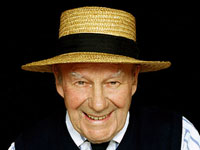



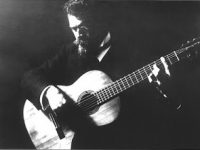
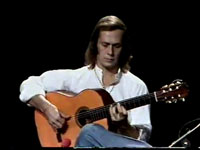
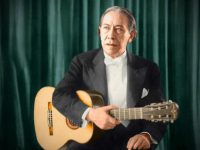
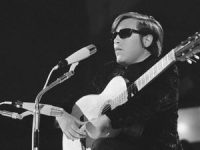

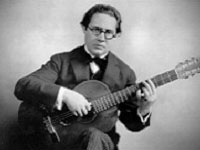
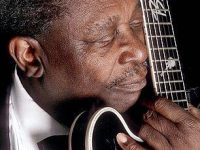


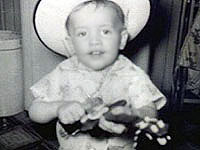
Filmed by Roman Gurochkin, my favorite maker of classical guitar videos.
Grondona is playing Polaca Fantástica by Julián Arcas (1832-1882), from a 2006 concert in Almería, Spain. The Antonio Torres guitar is #111 from the maker’s “Second Epoch” (SE 111).
Composed and performed by Frederic Hand for his granddaughter Sophia.
Guitar by John Gilbert, 1981.
Recorded August 13, 2012, at Greenville Church, Scarsdale, NY.
Miley’s Wrecking Ball on fingerstyle guitar – Michael Chapdelaine makes it werk.
A nice Capricho by Drew Henderson. Takes his time, listens, tastefully varies his touch. Nice.
This time with The Guardian.
“There’s nothing sad about not playing any more. The thing I feel a little annoyed about is that I know I’m a better musician than I was at 70, but I can’t prove it.”
“I became much more critical in the last decade, of phrasing and tempo and general musical interpretation.”
“I devoted my life to music for a reason, and the reason wasn’t because I wanted to get on or make money, but to try to fulfil myself and also to give people pleasure. That’s been my credo.”
“The last 10 years of my life, from 70 to 80, have been the most interesting because I have only done what I wanted to do. I have cut away what I call the excess stuff in my life. I’m quite reflective – I listen to music, I read, I walk with Django.”
“I’ve had a lovely life. I’ve had a great life. Letting go, yes, but in a controlled way. Now it’s time to let go, to enjoy what’s left.”
In 1935, Segovia premiered his milestone transcription of Bach’s Chaconne and vaulted the classical guitar into the realm of “serious” instruments. In 1955, he recorded it. Thanks to Segovia, we classical guitarists feel like we own a little piece of this monumental masterpiece for solo violin.
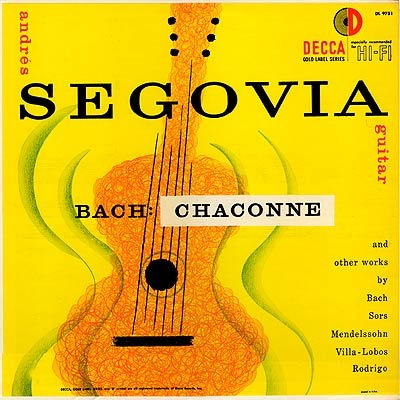
Still, it behooves us to study great violinists playing this piece — and until late last night I thought I could do no better than to study the legendary Jascha Heifetz playing the Chaconne. 20 years ago I found a VHS tape of Heifetz playing it. That tape was my greatest treasure for several years.
Segovia had a story he would tell whenever he talked about the Chaconne. According to Segovia, the famous violinist Enesco gave the following advice to a student: “You must study the Chaconne all your life, but you must not play it in public until you are 50, because it is very, very deep.”
I learned the Chaconne when I was 17, but I took that story to heart and refrained from playing it in public. I found the Heifetz video when I was 40. I watched it countless times, studying every nuance that I could grasp, including, toward the end of the piece, the subtle expressions of emotion that would pass across Heifetz’s famous “great stone face.” To see this giant in his 70th year deliver this music… well, it seemed to me that nothing could be better.
As I said, I’ve always thought Heifetz was the last word on the Chaconne. But then, in the wee hours last night, I was reading about this being the 50th year since the JFK assassination. I read that a week after the assassination, at the first road show of the musical Camelot, the audience broke down in uncontrollable grief when the title song was sung.
Reading further, I found many stories of musical tributes to JFK in 1963. Among them was this story about Isaac Stern:
[Stern] recalled when he was in Dallas the day that his friend, President John F. Kennedy, was assassinated. Sitting in a cafe at the Dallas airport, while waiting for a connecting flight to San Antonio, a devastated Stern and a friend downed a bottle of bourbon. Looking out the window, they could see Air Force One which was carrying Kennedy’s body.
The next night, Stern was scheduled to play the Sibelius Violin Concerto in D Minor with the San Antonio Symphony, but at the morning rehearsal he told the conductor that the piece seemed inappropriate.
The only thing he felt he could play was Bach. That night he told the 4,000 people in attendance that musicians sometimes pray by playing certain kinds of music, and that he prayed by playing the “soul-cleansing” music of Bach. Stern asked the audience not to applaud at the end.
While playing the Bach Chaconne, he wept uncontrollably. After he finished the piece, there was dead silence. He put his violin back in its case, left the auditorium and flew back to New York.
From Wikipedia:
John Nicholas Maw (5 November 1935 – 19 May 2009) was a British composer.
Born in Grantham, Lincolnshire, Maw was the son of Clarence Frederick Maw and Hilda Ellen Chambers. He attended the Wennington School, a boarding school, in Wetherby in the West Riding of Yorkshire. His mother died of tuberculosis when he was 14. He attended the Royal Academy of Music on Marylebone Road in London where his teachers were Paul Steinitz and Lennox Berkeley. He then studied in Paris with Nadia Boulanger and Max Deutsch.
From 1998 until 2008, Maw served on the faculty of the Peabody Institute at Johns Hopkins University, where he taught music composition. He had previously served on the faculties of Yale University, Bard College, Boston University, the Royal Academy of Music, Cambridge University, and Exeter University.
Maw is best known for the orchestral pieces Odyssey (1987) and The World in the Evening (1988), the guitar work Music of Memory (1989) and a violin concerto (1993) written for Joshua Bell. His music has been described as neo-romantic but also as modernist and non-tonal (for instance Personæ, his cycle of piano pieces).
From Wikipedia:
Thomas Viloteau (born 1985) is a French classical guitarist who began his studies at the age of 12 in Port-Saint-Louis-du-Rhône in southern France. After beginning his career in France, in 1998 Viloteau continued his studies when he attended the Escuela de Música Juan Pedro Carrero in Barcelona, Spain. Here he studied under Maité Rubio while taking additional master classes with Álvaro Pierri. Furthering his education in Spain, beginning in 2000 Viloteau entered the Conservatorio Superior de Música de Barcelona where he studied with teacher Joan Furio. Returning to France in 2001, Viloteau entered the École Normale Supérieure in Paris after receiving the Fondation Zigmund Zaleski Scholarship. Here he studied under the guidance of maestro Alberto Ponce and graduated in 2004 with a Diplôme Supérieur de Concertiste. Remaining in Paris, Viloteau entered the Conservatoire National Supérieur de Musique de Paris in 2004, where he studied with Roland Dyens and worked privately with Judicaël Perroy. In 2009, Viloteau received the Milton Salkind Scholarship Fund to attend the San Francisco Conservatory of Music where graduated with a Professional Studies Diploma after studying with professor Marc Teicholz for a year.